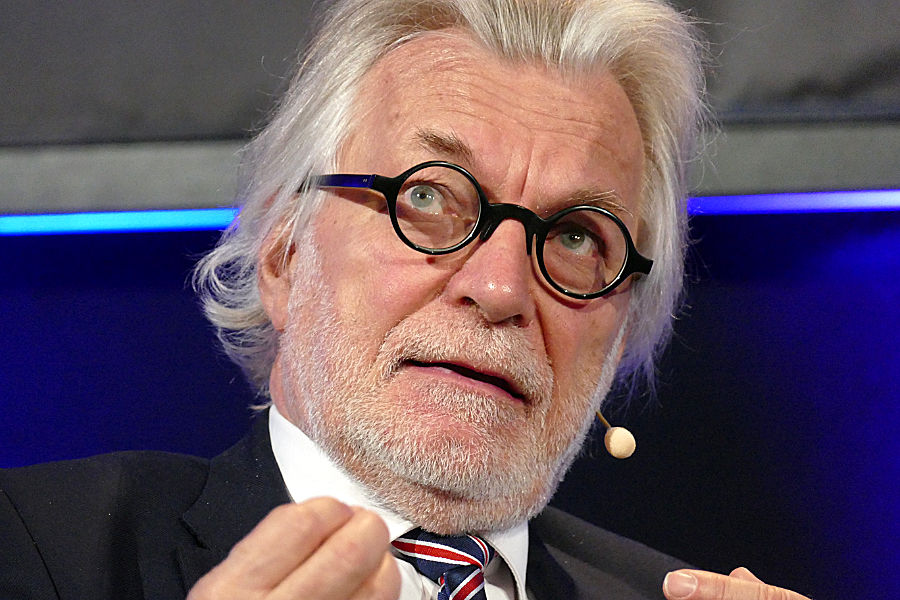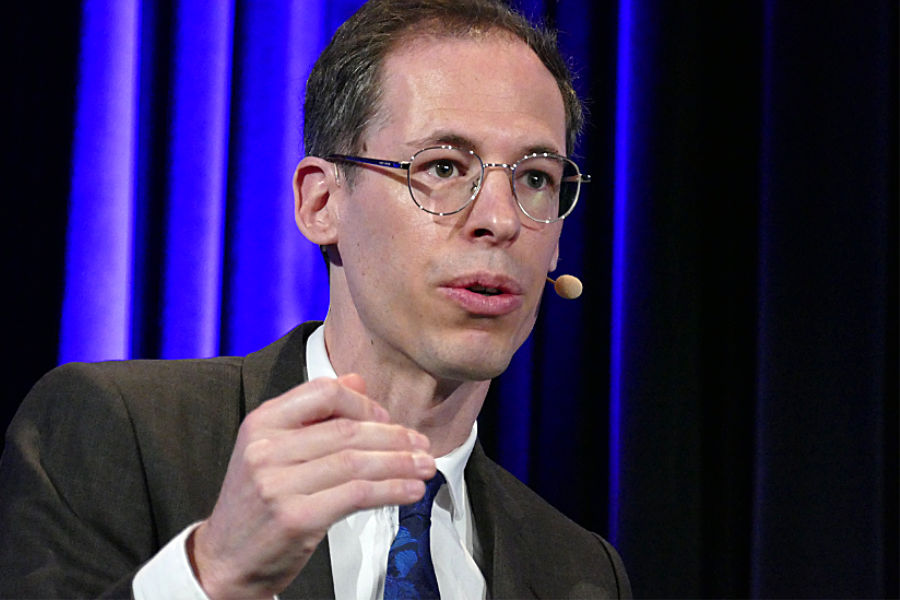There are some very unpredictable parts of the macro-economic picture in 2024, and some very predictable parts, potentially creating focused pockets of volatility for traders in the months ahead.

Speaking at TradeTech in Paris, Philippe Waechter, chief economist at Ostrum Asset Management noted that the perspective on interest rates was changing between geographies.
“My guess is that we will have a great divergence between the US and the Eurozone,” he said. “An article in the Financial Times predicted the probability of a rate hike in the US is now 20%. Economists all expect that nothing will happen because you have so many strong figures in growth and consumption. Now the situation is changing a little bit – the probably of a rate hike in the US is not near. But I expect that the ECB will push down its interest rate very rapidly, because it said it would be a source of impulse for Europe.”
The effect on merging markets has been substantial, with EM debt now looking far less attractive in the rising rate environment, relative to developed market debt.

Alessia Berardi, head of EM macro and strategy research at Amundi Institute noted that the divergence in central bank policies between the US and Europe is also being reflected in EM.
“We have seen with repricing of the Fed easing, emerging markets currencies have been weakening quite substantially,” she said. “This is quite widespread, regardless of emerging markets be that LatAm, Asia or Eastern Europe. So it’s true that there is a dichotomy between the Fed and ECB at this point, at least that is the market perception, but for the time being emerging market central banks will focus more on the Fed.”
Both sides of the Atlantic are also facing elections this year, however, the likely impact on central banks and capital markets is uncertain.
“Inflation has almost disappeared in the US so why would they change the situation?” asked Waechter. “In Europe, the situation is very different. The June [European] election carries a very important issue; what will happen if the extreme right lead, or have an important share in, the European Parliament? [The extreme right] all hate European institutions. They say we have to do things very differently, and they’re against every measure on energy transition. So that would be a real change. That said, it will be neutral on interest rates, and on financial markets.”

Laurent Clavel, global head of multi-asset at AXA Investment Management, disagreed with this perspective, on the basis that the market does not care about the European elections.
“It never does,” he said. “Basically, Europe is ‘boring’. As a citizen, you should care. You should vote and your vote counts triple because nobody votes. But the market is not going to care even if, which is probable, you get a very large far right vote across Europe, a messy Parliament. It will care about US elections.”
However he also observed some discrepancies between what people think they know which possibly “ain’t so” to paraphrase Mark Twain.
“What strikes me as a market observer, is this time everybody tells me [Trump] is going to be elected, like it’s a done deal,” ,” he said. “That’s not at all what polls are telling you but that’s what everybody thinks. Therefore, the market reaction will be quite different, because that’s what people expect. The second thing that strikes me is people telling me, ‘This time, the market reaction will be different’, because [Trump] will know how to do things fast and it will be scary. But the market reaction will be the same, because the policy is the same. So it will be the reflationary trading, it will be less regulation for tech, less regulation for the dirtiest business in the US. If you go long equities, go long dirt and short US Treasuries then it will work this time.”
Christophe Morel, chief economist at Groupama Asset Management observed that from an investment point of view, the changing rate environment is allowing equity markets to flourish despite the theoretical correlation between lower rates and higher stock prices.
“If we have this economic normalisation which lead to monetary normalisation it is supposed to lead to financial normalisation, particularly in terms of correlations. it means that we were in the liquidity landscape, we move to more growth landscape,” he said. “So it’s it means that stock market can arise without necessarily lower interest rate. And this is what we do observe recently, the stock market is able to rise with higher interest rate because those higher interest rates at the end of the day, this is something which is positive.”
Getting caught by the correlation between equities and fixed income in the event of a market shock is not an option says Laurent Clavel, global head of multi-asset at AXA Investment Management.
“Let’s take a very bad event, such as the Chinese Peoples Army tomorrow invades Taiwan?” he posited. “What happens? Equities go down. That’s not rocket science. What does the 10-year Treasury do? It goes down as well.”
Having been caught out twice by this scenario in the last three years, it would impossible to allow a portfolio to suffer again and expect clients to tolerate it.
“Your clients will crucify you, if you explain that, unfortunately, you’re suffering from the positive coalition again,” he said. “What we’ve done is use derivative using what we call dynamic hedging. You buy the insurance, when everybody believes that it’s unnecessary to hold an insurance. When the market does fall, and volatility spikes, you need to monetise so you sell the insurance policy, possibly before it’s useful. You don’t need to reach your strike, you need to sell it because suddenly everybody wants to buy your insurance policy.”



